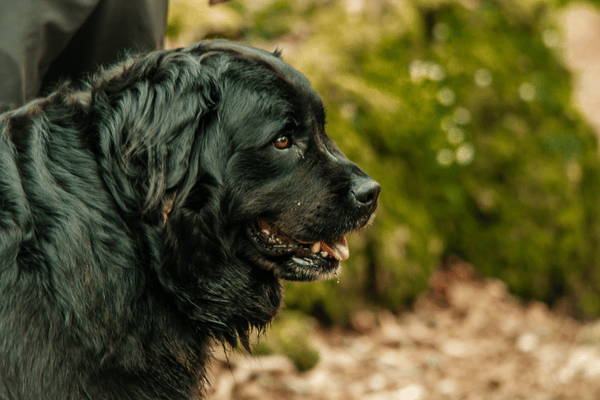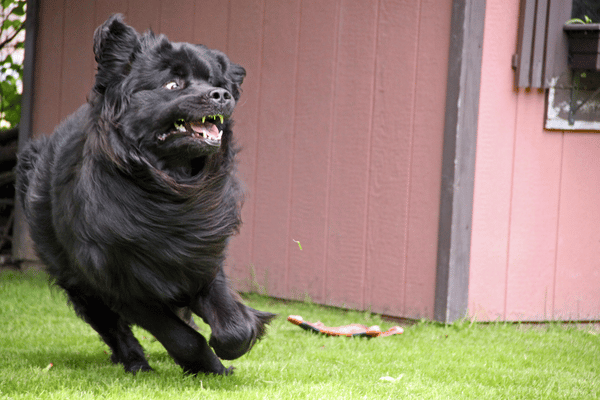
Introduction
Newfoundland dogs are truly special, with their lovable demeanor, impressive size, and loyal companionship. They have been a special breed for centuries, and their true bond with humans is undeniable. This article will explore the history of this majestic breed, its unique personalities, life expectancy, diet and nutrition needs, exercise requirements, and grooming and care instructions. Read on to learn more about the special bond you can form with a Newfoundland Dog!
History of the Newfoundland Dog
The Newfoundland Dog is a large and robust breed from the Canadian island of Newfoundland. The breed has been around since at least the 1700s, with evidence of its origins being found in nearby areas of Labrador. The breed was bred to assist fishermen in their daily fishing duties, with the dogs serving as guard dogs, hauling in nets, pulling carts and sleds, and helping to rescue those lost at sea. The breed was officially recognized by the American Kennel Club in 1886 and is now one of the most popular breeds of dogs.
Personality & Temperament

Newfoundland dogs are renowned for their gentle, kind, and affectionate personalities. They are easily trained, loyal to their families, and form strong bonds with their owners – making them the ideal companion dog. Constant attention and love are essential for this breed, as they become close to their family and thrive on companionship. They make the perfect dog for a family with children, as they are known for their patience and gentleness when playing with kids. Newfoundland dogs are widely known for their intelligence, so this breed will require consistent training to ensure good behavior. Although these dogs can be large, their calm and gentle nature makes them an easy breed to handle.
The Life Expectancy & Size of a Newfoundland Dog

The Newfoundland Dog is a devoted companion and a large breed of canine. On average, a Newfoundland Dog has a lifespan of 8 to 10 years and can weigh up to 150 pounds! This breed needs plenty of space to roam and play, so it’s essential to have a large and secure backyard if you adopt a Newfoundland Dog. Regarding their size, the Newfoundland Dog is classified as a giant breed, with males standing 28 to 36 inches tall at the shoulder and weighing 130 to 150 pounds.
What Should I Feed My Newfoundland Dog?
Newfoundland dogs are high-energy and need a balanced diet to remain healthy and happy. When considering what to feed your Newfoundland, there are vital factors to remember. You can start by finding a high-quality dry dog food that contains ingredients such as animal-based proteins, healthy fats, and carbohydrates. Including a variety of wet and dry foods in your dog’s diet is also essential. Your veterinarian can provide specific nutrition recommendations based on your dog’s age, size, and activity level. Finally, Newfoundlands require lots of love and attention, so provide plenty of treats and snacks to keep them happy and healthy.
How Much Exercise Does a Newfoundland Dog Need?

Newfoundland dogs are an active and intelligent breed, requiring a good amount of exercise daily to stay healthy and happy. A daily walk of at least 45 minutes is recommended for adult dogs. However, this time may need to be longer depending on your Newfoundland’s age, size, and energy level. While adult Newfoundlands do not require significant exercise, puppies require much more as they develop. Puppies should typically have at least two walks a day and engage in activities such as games and agility exercises to get necessary exercise and stimulate their brains. Additionally, Newfoundlands love to swim, so having access to a body of water is always beneficial. With proper exercise, Newfoundlands can be a loving and loyal companion for years to come.
Grooming & Care
A Newfoundland dog is a large breed with a thick, water-resistant coat. As such, their grooming and care requirements are extensive. The fur should be combed and brushed regularly. Bathing should only be done when necessary, and if done, it should be done with a mild shampoo to prevent drying and irritation of the skin. The Newfoundland dog’s nails should be clipped regularly, and the ears should be checked and cleaned once a week. Tooth brushing is also vital in their care, as they are prone to developing dental issues. Finally, they should be checked for skin issues, lumps, and bumps at least twice a year and should have regular visits to the veterinarian. With proper care, grooming, and exercise, your Newfoundland dog will thrive in your home and be a loyal companion for many years.
What Type of Grooming Does a Newfoundland Dog Need?
Grooming a Newfoundland dog is essential to keeping its coat healthy and looking its best. Regular brushing should be performed to remove any dead or loose hair, depending on the season and the climate. They should also be bathed regularly, although not more than once a week. Monthly nail trims are necessary, and their ears should be cleaned regularly to prevent any wax buildup or infection. Regular brushing and combing with a pin brush are recommended for proper coat care. Regular grooming will ensure Newfoundland has a long, healthy, and beautiful coat.
What Are Some Common Health Issues for the Newfoundland Dog?
The Newfoundland Dog is a solid yet gentle breed, but as with all breeds, specific health issues are more commonly seen in the breed. In particular, the Newfoundland Dog is predisposed to hip and elbow dysplasia, heart diseases, and certain eye conditions. It is essential to provide these dogs with regular vet check-ups and adequate exercise to keep them healthy. Additionally, providing a nutritionally balanced diet is essential, as a well-nourished dog can better fight off illnesses. A Newfoundland Dog can make an excellent companion, but exercise and vigilance are vital to keeping them healthy and happy.
Conclusion
In conclusion, life with a Newfoundland Dog is a truly unique and rewarding experience. They are loyal, gentle, courageous, and devoted companions. They have a long life expectancy, ranging from 8-10 years, and can grow to enormous sizes up to 150 pounds. They require regular nutrition and a diet from high-quality food sources, including proteins, fats, carbohydrates, and essential minerals. In terms of exercise, they need regular walks and playtime to stay fit and healthy. Lastly, they need regular grooming, including brushing and bathing, to keep their coat in top condition. With proper care and love, a Newfoundland Dog can become a wonderful part of the family and bring much joy to its owners.


